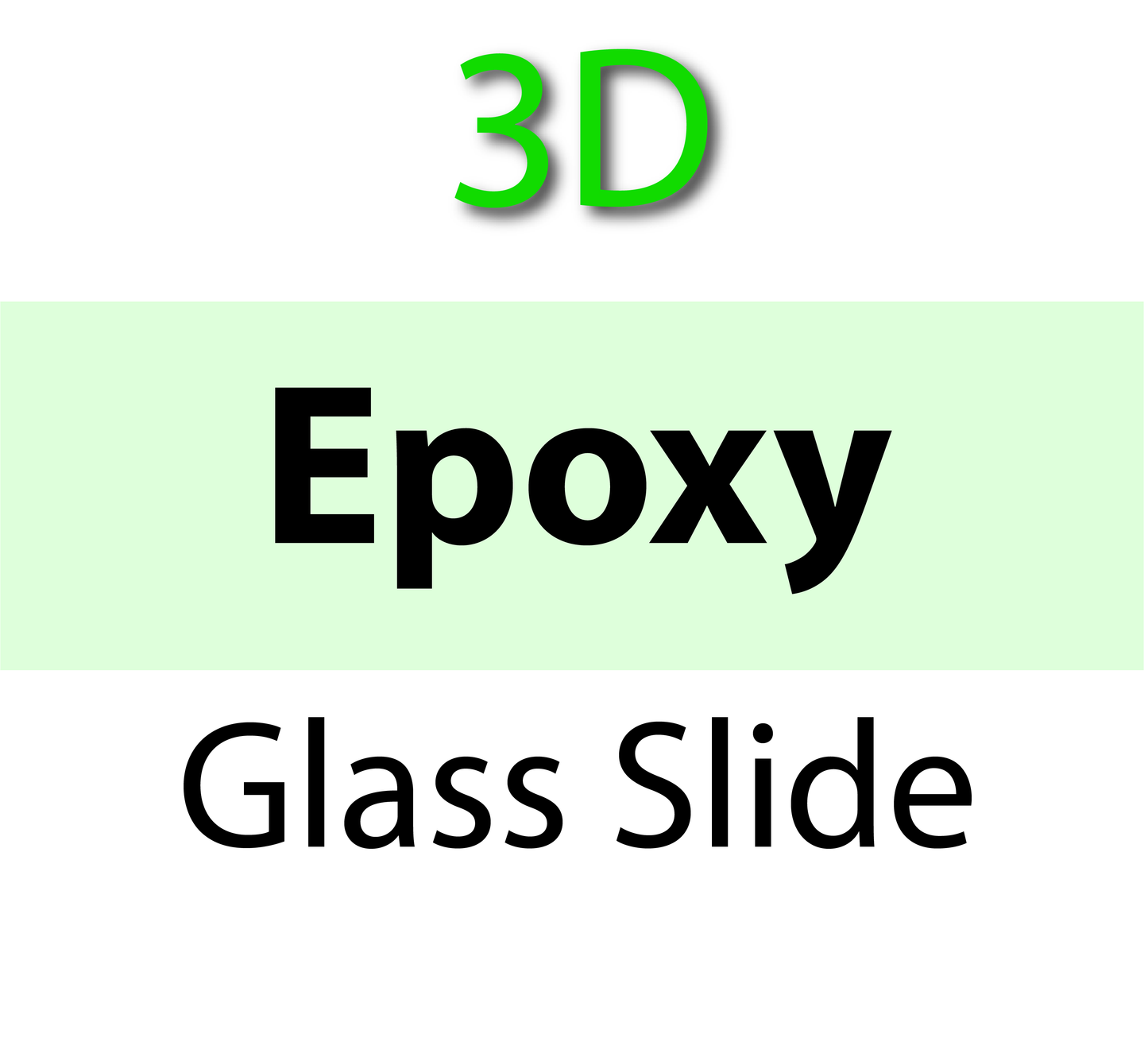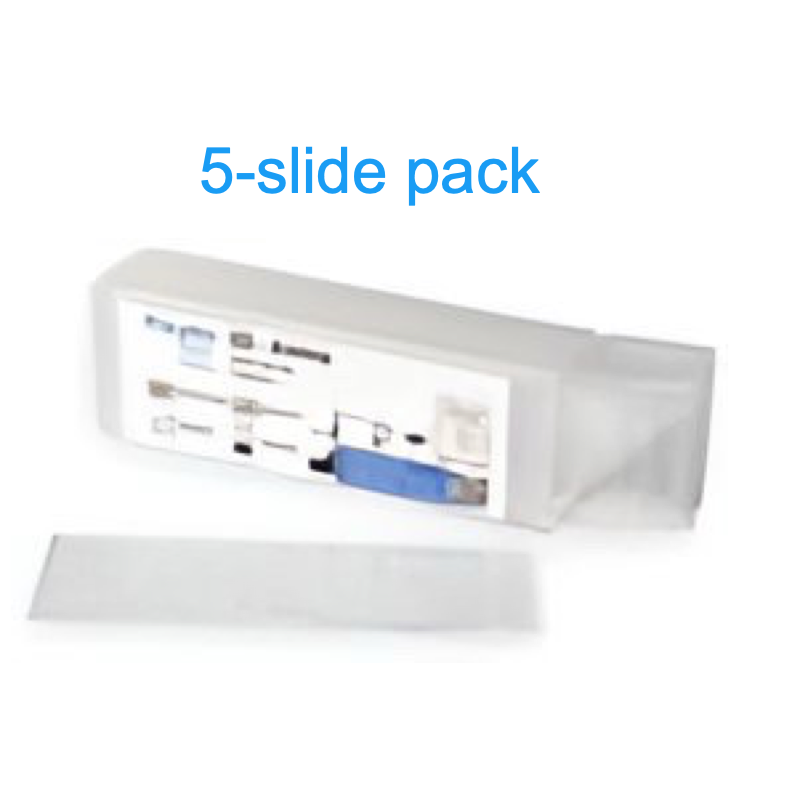PolyAn
104-00-205 PolyAn 3D-Epoxy Glass Slide (5 slides/box)
104-00-205 PolyAn 3D-Epoxy Glass Slide (5 slides/box)
Couldn't load pickup availability
3D-Epoxy Glass Slide, 5 slides/box
The 3D-epoxy glass slides are manufactured from quality substrate with high flatness surface smoothness. The glass has very low background fluorescence.
These slides are compatible with all microarray printers and slide scanners / imagers. We recommend the axiREADERsfor both colorimetric and fluorometric applications.
Surface Modification
PolyAn’s 3D-functionalised microarray slides are functionalized with a three-dimensional (3D)-surface chemistry comprised of a long-chain polymer containing a defined number of reactive groups. This polymer is covalently linked to the surface of the glass surface.
PolyAn 3D-epoxy glass surface's reactive groups consists of epoxides. The epoxides will covalently bind most biomolecules, including oligonucleotides, proteins, peptides and small molecules.
Epoxides are cyclic ethers with a highly strained three-member ring. Epoxy rings can be easily reacted with nucleophiles e.g. amines, hydrazines, thiols, hydroxides and carboxyl groups. Compared to NHS-esters or 1,4-Phenylene isothiocyates (PDITC) the epoxy surface is more stable and has a longer shelf-life.
Epoxy surfaces are stable up to temperatures of 40° C and are also more stable against humidity compared to NHS and PDITC-surfaces.
The nucleophilic addition is catalyzed by acid or basic conditions. Under acidic conditions, the oxygen in the ring is positively charged, which facilitates the nucleophilic attack. Under basic conditions the least substituted carbon is attacked by the applied nucleophile in a standard SN2 reaction.
The epoxy slides are also available as 25-packs, or in larger quantities upon request.
Share




